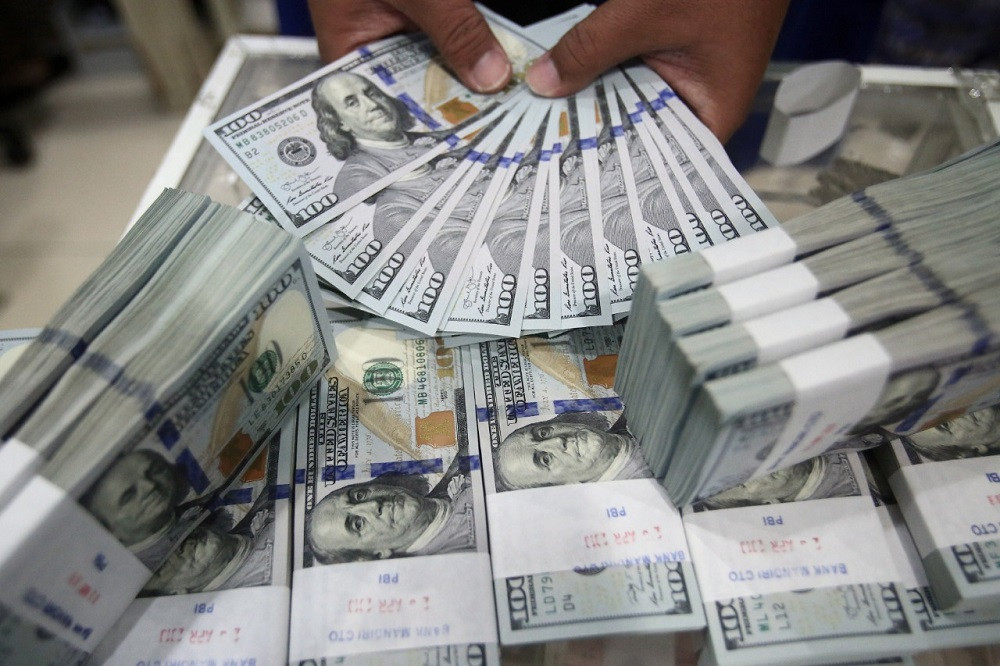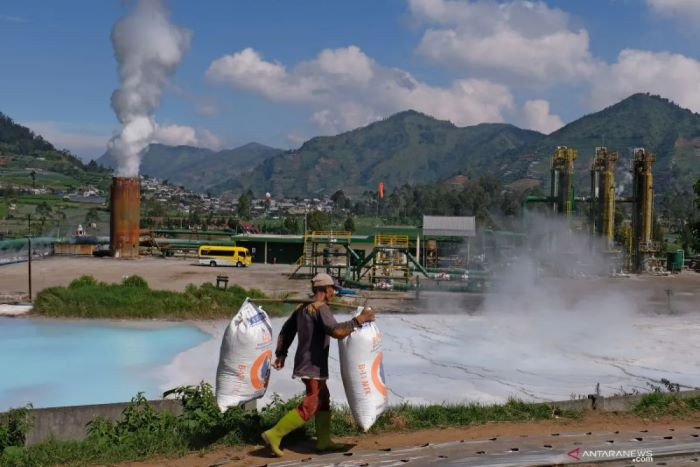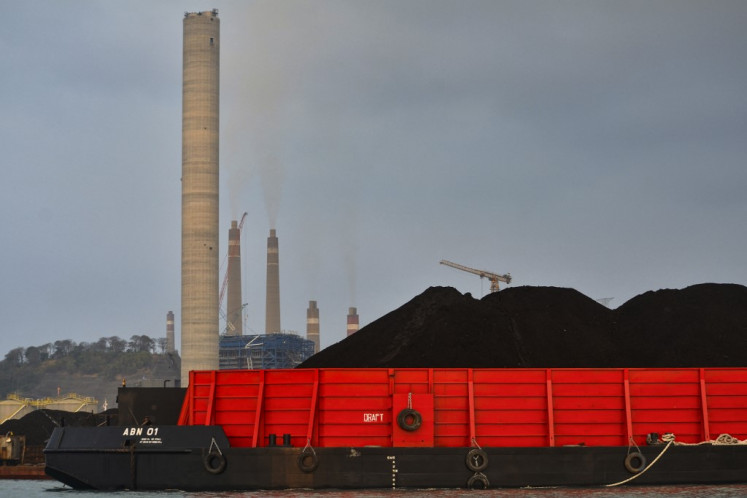Popular Reads
Top Results
Can't find what you're looking for?
View all search resultsPopular Reads
Top Results
Can't find what you're looking for?
View all search resultsForex reserves stagnant in August as BI seeks to stabilize rupiah
Change text size
Gift Premium Articles
to Anyone
A
t the end of August, Indonesia’s foreign exchange reserves, despite remaining stagnant from the previous month at US$132.2 billion, were deemed sufficient to support the country’s economic prospects for the rest of this year.
According to Bank Indonesia data, the foreign exchange reserve position in August was heavily supported by tax and service revenues as well as oil-and-gas foreign exchange receipts, amid the need to stabilize the rupiah due to unstable global financial market expectations.
Head of Communication Department of the central bank, Erwin Haryono, said the $132.2 billion worth of reserves was equivalent to financing 6 months of imports and servicing government external debt, well above the international standard for adequacy, which is about 3 months of imports.
“Bank Indonesia views the foreign exchange reserves as capable of supporting external-sector resilience and maintaining macroeconomic- and financial-system security,” he stated in the bank’s release on Wednesday.
Going forward, the central bank believes the foreign exchange reserves will remain sufficient, supported by resilient economic prospects, along with various responses in maintaining the macroeconomic and financial system to support the national economic-recovery process.
Faisal Rachman, economist at state-owned Bank Mandiri, said that Indonesia’s goods surplus in the current account balance still supports moving forward cautiously, judging from Bank Indonesia’s latest report on the country’s foreign exchange reserves.
“We expect import to keep pace with export along with accelerating domestic economic recovery. Indonesia’s economy expanded more than expected in the second quarter of this year, suggesting an improvement in domestic consumption and production,” he said in a brief also released on Wednesday.
Bank Mandiri projected foreign exchange reserves will hit around $130-$140 billion by the end of this year, down from last year’s $144.9 billion, with the rupiah exchange rate at Rp 14,765 per dollar at the end of this year.
“We also maintain our view that the second half’s financial-account balance could face several downside risks, which may overshadow its inflow potential,” he explained further, adding that the central bank might adapt a more hawkish monetary policy that could potentially trigger capital outflow.
The source of inflow, meanwhile, is expected to rely on direct investment driven by “solid domestic-economic recovery”.
On another note, Faisal underlined that export performance in the second half of this year would be at risk of weakening as the commodity windfall would likely ease nearing the end of 2022.
“[However], we see that the 2022 current account balance may still potentially record a small surplus of 0.03 percent of GDP, down from 0.28 percent of GDP recorded last year,” he continued.
Moreover, the government’s and the central bank’s effort to reinforce sanctions for exporters who do not domestically place their foreign exchange from export proceeds (DHE) could also contribute to greater stability.











